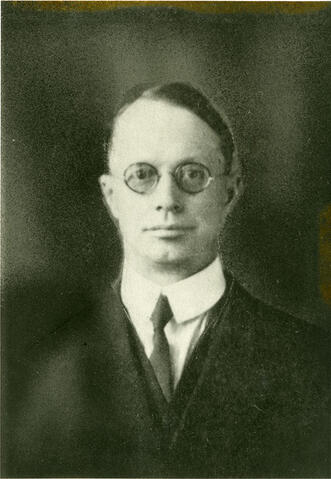
Área de título y declaración de responsabilidad
Título apropiado
Dr. Samuel E. Greenway - Portrait
Tipo general de material
- Graphic material
Título paralelo
Otra información de título
Título declaración de responsabilidad
Título notas
Nivel de descripción
Item
Institución archivística
Código de referencia
Área de edición
Declaración de edición
Declaración de responsabilidad de edición
Área de detalles específicos de la clase de material
Mención de la escala (cartográfica)
Mención de proyección (cartográfica)
Mención de coordenadas (cartográfica)
Mención de la escala (arquitectónica)
Jurisdicción de emisión y denominación (filatélico)
Área de fechas de creación
Fecha(s)
-
[before 1919] (Criação)
Área de descripción física
Descripción física
1 photograph : b&w ; 12.5 x 18 cm
Área de series editoriales
Título apropiado de las series del editor
Títulos paralelos de serie editorial
Otra información de título de las series editoriales
Declaración de responsabilidad relativa a las series editoriales
Numeración dentro de la serie editorial
Nota en las series editoriales
Área de descripción del archivo
Nombre del productor
Historial de custodia
Alcance y contenido
Head and shoulders portrait of Dr. Samuel Earl Greenway, Director of Extension.
Bio/Historical Note: Dr. Samuel Earl Greenway was born 16 February 1875 in Little Prairie, Wisconsin. He settled in Manitoba in 1880, and was in turn a farmer, teacher, telegraph operator, and reporter, editor and contributor to magazines. Dr. Greenway was involved in a pivotal event in the history of the University of Saskatchewan, known as “the University crisis of 1919.” The matter became public on June 28 when the Saskatoon Star announced that four members of faculty had been fired without explanation. They were: Samuel E. Greenway, director of Extension; Robert D. McLaurin; head of Chemistry; Ira A. MacKay, professor of Law; and John L. Hogg, head of Physics. All were senior members of faculty with many years of experience. The affair had started in March of that year when Greenway had accused Walter C. Murray, University President, of falsifying a report about University finances. This complaint had been made to the government and not to the Board of Governors. In early April Council voted 27 to zero “affirming its confidence and loyalty to the President” while four members abstained. Three of those who abstained plus Greenway were dismissed as the Board put it, “in the best interest of the University.” The public and the press clamoured for an explanation. When one was not forthcoming, calls for a public inquiry were loud and persistent. In accordance with the University Act, the Lieutenant Governor assumed the role of Visitor and through the office of the King’s Bench held a series of hearings. The Visitor’s report was delivered in April 1920 and vindicated the Board’s decision saying it was “regular, proper and in the best interest of the university.” The professors were not protected by tenure but were employed “at the pleasure of the board.” Their act of disloyalty was enough to cost them their jobs.
Área de notas
Condiciones físicas
Origen del ingreso
Arreglo
Idioma del material
Escritura del material
Ubicación de los originales
Disponibilidad de otros formatos
Restricciones de acceso
Condiciones de uso, reproducción, y publicación
Photographer: Unknown
Copyright holder: Public domain
Other terms: Responsibility regarding questions of copyright that may arise in the use of any images is assumed by the researcher.

